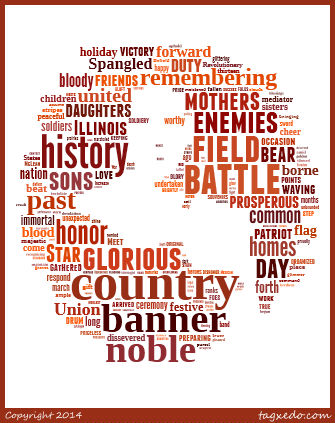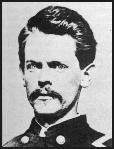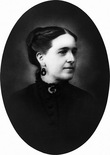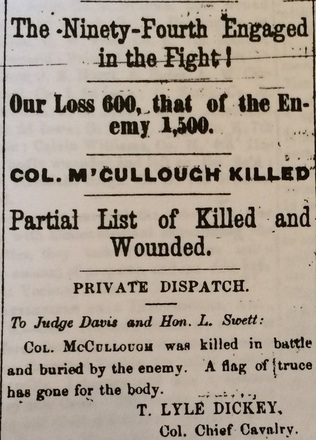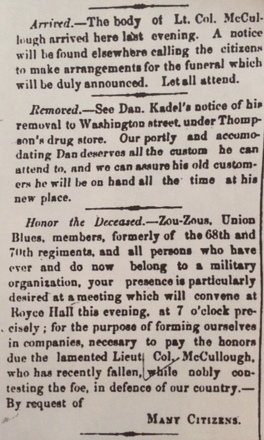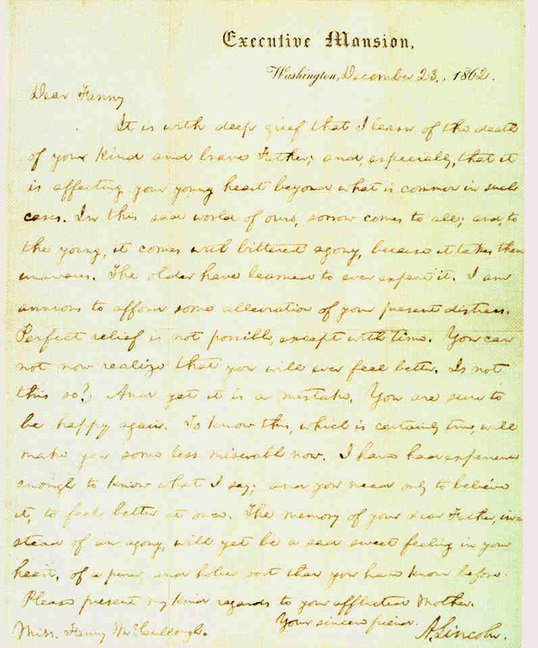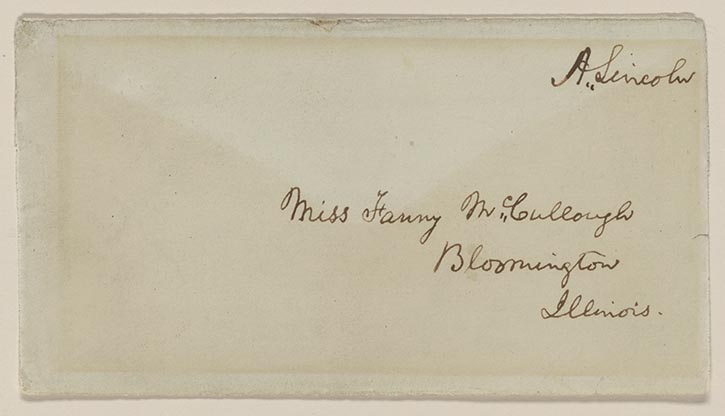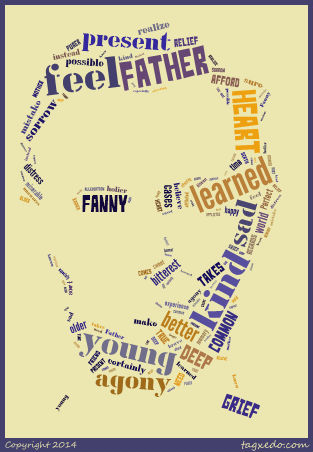Who was Fanny McCullough?
Though Abraham Lincoln wrote her a letter, not much is known about Fanny McCullough. She was the daughter of William McCullough and was known to suffer from a somewhat nervous disposition. She lived in Bloomington, Illinois and went to Monticello Seminary in Godfrey, Illinois for a time during the 1850s. Below is a direct speech from Fanny, one of the only primary sources that remain from her. This speech was given in Bloomington, Illinois as part of the flag presentation to the cavalry and infantry troops from the Ladies' Committee. Though it seems like a small affair, this speech offers much insight into Fanny's personally held beliefs and, perhaps, the sentiment of many who supported Lincoln and the preservation of the Union.
Fanny McCullough's Flag Presentation Speech (May 15, 1861)
|
Read “Miss McCullough's Address” by Fanny McCullough on Poetry Genius |
Word Cloud of Fanny's SpeechQuestion to consider: What does this speech reveal about Fanny McCullough's political beliefs? |
William W. Orme on Fanny McCullough
Grace Cheney Wright, a Bloomington resident, wrote a small pamphlet titled, "Fanny McCullough," in 1951 that contains brief quotations about Fanny's activities as recorded by her brother-in-law, William W. Orme. Most of these observations come from 1855 when Orme wrote to his wife, Nannie, while she was in Washington, D.C. William Orme remained in Bloomington to assist the McCulloughs and tend to his newborn son.
Bloomington reacts to McCullough's death
|
Citizens of Bloomington, Illinois were notified of McCullough's death on December 10, 1862 in The Pantagraph.
|
Instructions were given on the attendance of McCullough's funeral on December 17, 1862 in The Pantagraph.
|
Correspondence concerning McCullough's death
|
This series of letters offers unique and valuable insight into the reactions of close friends and family in the wake of Lieutenant Colonel William McCullough's death. It illustrates a story that is not just true of the McCullough situation, but one that was experienced by countless families during the Civil War. Click through the links to the right to better understand why Lincoln would have been driven to write to Fanny McCullough on the death of her father.
|

